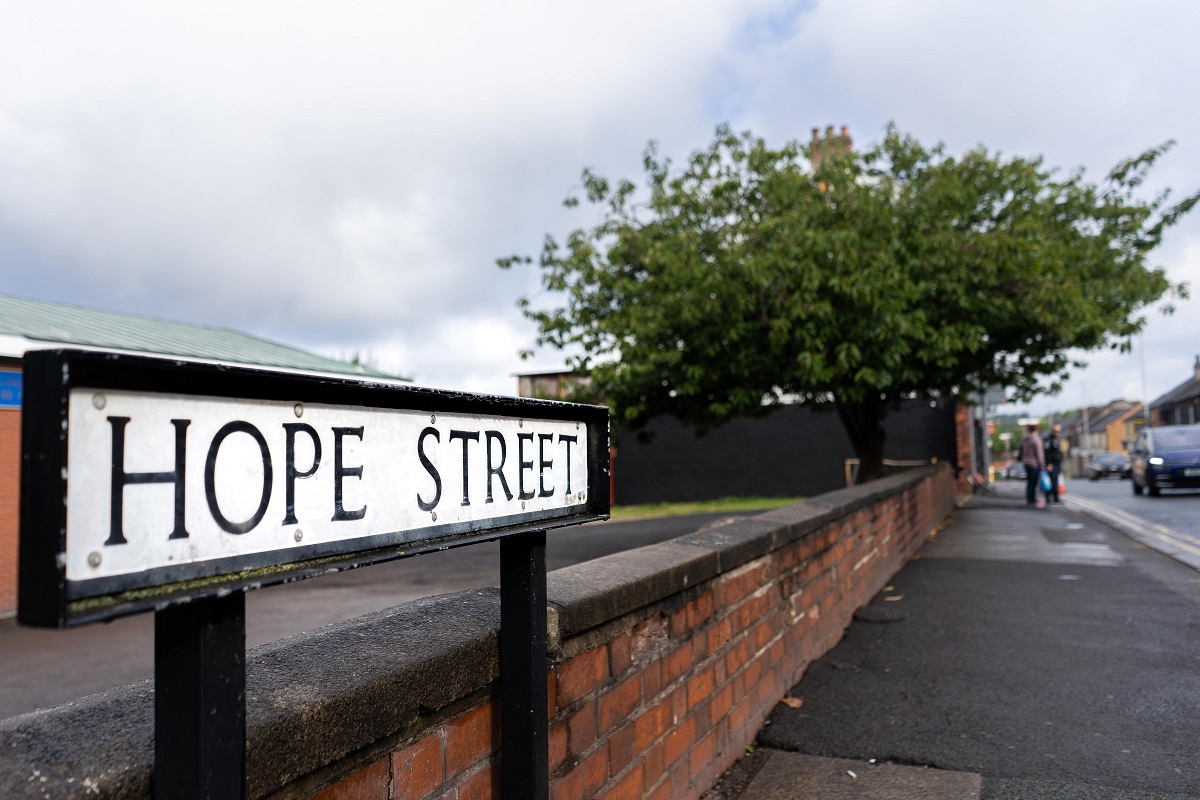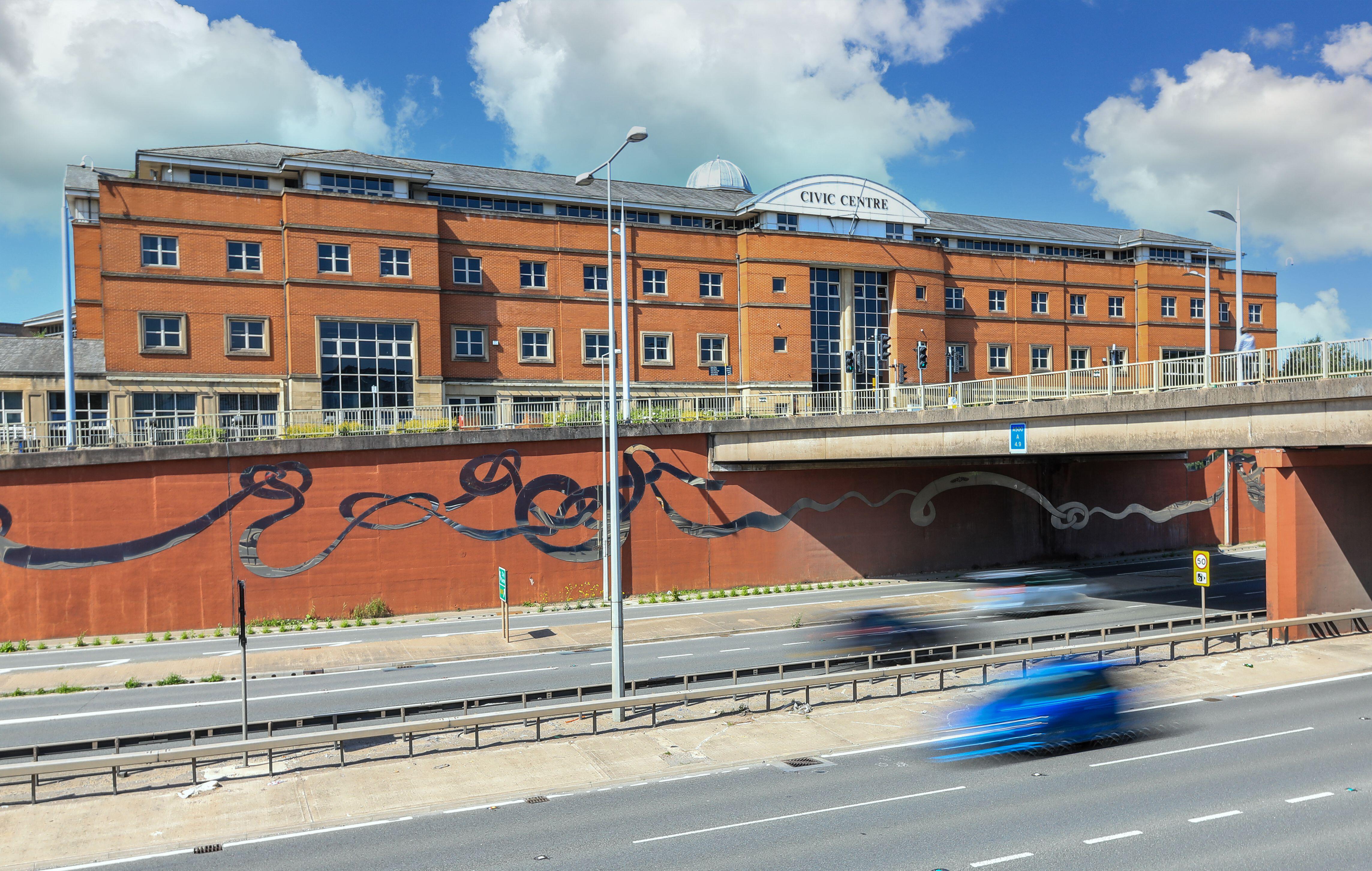'I thought nobody cared - but Stoke-on-Trent's arts changed that'
“I never thought I had a valid opinion on anything. I thought nobody cared what I thought, but Appetite encouraged me to express myself and see myself as somebody worth listening to.”
Tess Tainton was an NHS administrator in Stoke-on-Trent who didn’t believe the arts were for her. They were for middle class or rich people, she thought.
After taking long-term sick leave due to mental ill health, Tainton lost her job and became homeless. In the midst of survived suicide attempts and the horrendous circumstances, she became involved with homelessness and mental health organisation Brighter Futures, and through them, Appetite.
“I was left with nothing and opportunities were few and far between. Then Appetite popped up,” she says. “I never thought I had a valid opinion on anything. I thought nobody cared what I thought, but Appetite encouraged me to express myself and see myself as somebody worth listening to.”
Appetite, which celebrated its ten year anniversary in 2023, is Stoke’s Creative People and Places Programme. These programmes were set up by Arts Council England in places with significantly low engagement in culture and creativity.
Addressing the vast and seemingly ever-growing issues of poverty, homelessness and mental health in this country requires strong political and economic solutions. However, the arts – as is being demonstrated in Stoke-on-Trent – can also offer transformative answers, through boosting psychological well being, enhancing social inclusion and improving community safety and cohesion.
From converting empty highstreet shops into artistic centres in Newcastle-under-Lyme, to cleaning up Kidsgrove’s canals, Appetite has been placing sustainable, engaging art in the everyday lives of Stokies for the past decade.
Today, Tainton is a homelessness charity activist engaged in community reporting and still volunteers with Appetite.
“The arts have a massive role in helping people understand what’s going on,” she says. “If you’ve not experienced homelessness art can help you understand it. It helps to make things visceral and can change people’s minds. To create change you need imagery, you need documentation. The arts help you experience homelessness without living it… The same with any social issue. The arts have a massive role to play in social change.”
It’s a view backed by leader of the opposition Keir Starmer who, speaking at the Labour Creatives Conference last week, pointed out that “there’s no building back without the arts”.
“To anyone who still thinks the arts are a ‘soft’ subject, not a strategic priority, a middle-class add on, I say – you just don’t get it. With Labour, creative skills won’t be treated as a luxury, but as a necessity, because we know they’re essential to our economic growth and our national identity.”
Tainton began performing with Appetite, her first taste of it in As The World Tipped, an aerial performance using projections, music and dance to confront the issue of climate change. Held in Central Forest Park, it was – like all Appetite performances – completely free to attend. Appetite believes access to culture shouldn’t be seen as a luxury only afforded to certain places and people. As Tainton highlights, the idea that arts are non-essential needs to be dismissed.
“You hear a lot of talk about benefits and how people shouldn’t be spending their money on things that they enjoy. But if you’re living that life, where’s the hope? Where’s the happiness? You need a reason to keep going and the arts are a way of doing that. It can be the one thing that makes you laugh or smile in a day. Stoke needs that.”
Prices are not the only barrier that people face, however. Many cultural institutions feel out of bounds for those who’ve never had the chance to go. Gemma Thomas, Appetite director, says many people feel alienated by the perceived etiquette of attending arts events. At the first Appetite shows ten years ago, for example, audience members didn’t know when they could clap, leaving awkward silences at the end of performances. After that Thomas would put her hands together first, which she realised gave others permission to join in.
It’s a feeling Appetite volunteer Kaz Hare can relate to.
“If you can’t afford it or you’ve never been, you don’t feel comfortable going to the theatre. It’s a scary place,” she says. “If that’s the case you’re not going to access anything. Appetite puts things on for free, on people’s doorstep.”
Hare attended her first Appetite event – a dance performance on a lake – seven years ago with her daughter.
“I’d never seen anything like it, it was beautiful and I thought, what a fabulous thing. It was all free and I really wanted to get involved and encourage other people to come and see things they wouldn’t normally get to see.”
In Stoke-on-Trent, cultural opportunities are often hard to come by. After the 2008 financial crash, cuts to arts funding meant smaller theatres, libraries and cultural centres closed. More recently the cost of living crisis means live arts performances have become an unaffordable expense for many.
Appetite’s annual Big Feast celebration, held right in the centre of Stoke-on-Trent, is impossible to miss, however. This helps challenge the sentiment that many Stokies feel – that high-quality arts aren’t for people like them in places like this.
“You’re just left really, you’re not important, everything goes on in the big cities,” says Hare. “You definitely feel left out of a national arts movement.”
In many ways, Stoke-on-Trent epitomises the political narrative of a place that’s been left behind. A post-industrial heartland, it became known as the BNP’s ‘jewel in the crown’ before being named the ‘Brexit capital of Britain’. Before many traditional Labour heartlands turned blue in the 2019 election – a potent symbol of disenfranchisement – Stoke-on-Trent South was ahead of the curve, electing a Conservative MP in 2017 for the first time in the constituency’s history. The city is one of the top 20 per cent most deprived areas of England. Investment, including in the arts, is vital to bringing back a sense of community, identity and hope.

Appetite by Andrew Billington
Celebrating Stoke’s historical and contemporary culture is vital in the fight against the far right, Appetite believes. Innovative, accessible arts pieces commissioned with the voices of community members in mind help to champion diversity in places where issues like immigration and gender can often be divisive topics.
Appetite actively seeks to engage with the multicultural, diverse communities living side by side in Stoke-on-Trent. It programmes annual events for Diwali. In August last year it put on Punjab to the Potteries which included a photographic exhibition and readings of two plays inspired by the journeys of South Asian families who settled in the region. Appetite also actively brings asylum seekers, LGBTQ+ groups and people with disabilities into decision-making roles around event programming.
The idea isn’t just to create events for these communities, but to engage the wider community in their stories too. One of Hare’s favourite performances was watching Bhangra dancing.
“Where do you normally get to see that? It was brilliant! We’ve also put on drag performances and I’ve been amazed at the positive responses from people in the audience – of all ages, male and female.”
Arts organisations have the ability to inspire ambition, identity and forward thinking in places like Stoke-on-Trent, which is often accused of living in the past.
“People in Stoke still talk about the pitfire and the potteries but that’s 100 years ago now,” says Tainton. “It’s not moved on from the industrial revolution because there’s nothing to move on to.”
Stoke’s failed bid for City of Culture in 2021 galvanised a more cohesive arts sector in the region, which was recently allocated £2.1million in levelling up funding. Part of this will go towards the Portland Inn Project, which has laid out a 100-year vision for culture and conservation in the region.
Anna Francis is co-director of the project. She attended her first Appetite show in Hanley Park whilst pregnant with her now ten year old. She has since worked with it on the Kidsgrove Canal Nature Recovery and Birder’s Paradise projects.
She acknowledges that the arts are only a part of the solution to addressing the huge social and economic challenges that the city is facing. But equally, that they have been vastly underestimated and undervalued in their ability to effect social change.
“As someone working in Stoke since 2005, I can remember a time before Appetite existed and can really see the enormous difference it has made,” she says. “I love that my children get to grow up in a Stoke that has Appetite within the cultural landscape. The city is now a much brighter, more interesting place.”
You can see the previous newsletter we sent to our subscribers here
The Lead is now on Substack.
Become a Member, and get our most groundbreaking content first. Become a Founder, and join the newsroom’s internal conversation - meet the writers, the editors and more.





